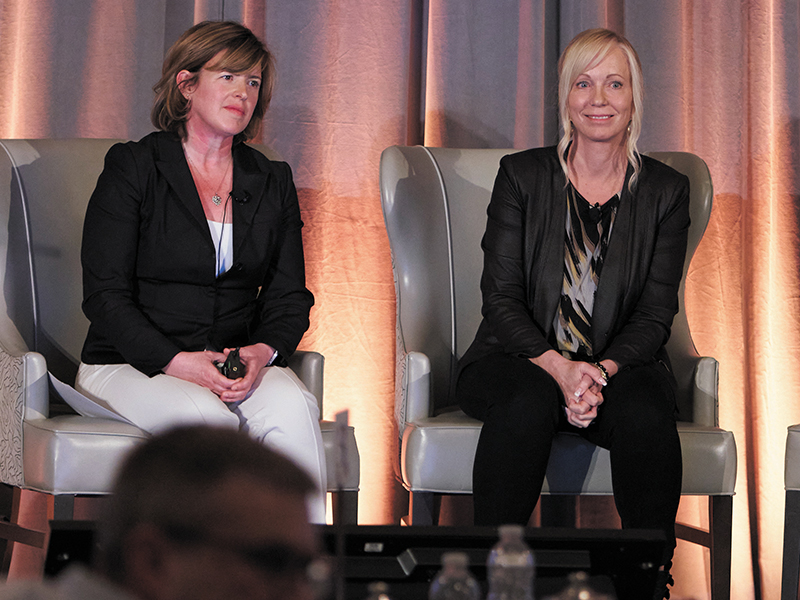
While defined contribution pension plan sponsors are focusing on providing members with information, education and guidance to ensure they’re ready for retirement, advice is becoming more holistic and covering a financial wellness continuum, said Jennifer Katzsch, regional vice-president for Western Canada, group retirement savings at Desjardins Insurance, during a session at Benefits Canada‘s 2022 DC Plan Summit.
“We need to do more . . . and it’s not just more on accumulation; it’s more in terms of setting our members up so they’re successful in decumulation. But what does more look like?”
Read: 2021 CAP Member Survey: How are CAP members faring during coronavirus?
Also speaking during the session, Carol Craig, director of pensions and benefits at TELUS Corp., shared a case study aiming to answer that question. In 2018, the organization went to market for a new record keeper, highlighting that decumulation was one of its key considerations.
“We wanted to make sure we had very competitive fees in decumulation, as well as accumulation. We didn’t want our retirees paying more than our active members because it feels a bit odd to me to have . . . retired members subsidizing the non-retired members. So we wanted to make sure we can keep that the same.”
In 2019, TELUS changed its record keeper, went through an investment review and decreased the options in its lineup — from 23 to 10 — and introduced a target-date fund as its default option. The organization also wanted to provide flexibility for its DC plan members, including how they generate income streams from both locked in and non-locked in assets, said Craig, noting 20 per cent of DC plan members are aged 50 or older and hold 32 per cent of the plan’s assets.
“We wanted to make sure we could keep that money in the plan . . . and also help plan members to retire. And our investment structure in decumulation is basically the same as we have an accumulation. It’s the same guiding principles. It’s a simplified structure and . . . we also knew we had to recognize that changing risk tolerance for some of our plan members in retirement.”
Read: Q&A with Telus Communications’ Carol Craig
In October 2021, TELUS introduced variable benefits, a group LIF and group retirement income fund. The reason for the different options is flexibility, said Craig. “Our [plan members] wanted the ability to have flexibility with their funds, they didn’t want to have to leave all of it locked in and so . . . to enable that for them, we put in the LIF.”
The LIF option will be removed, she noted, once the federal government amends the Income Tax Act to allow unlocking from within a DC plan.
While TELUS is one of the early adopters of in-plan decumulation, Craig said she believes all DC plan sponsors will end up on this route. “If we’re going to go down this road, we know we’re going to have to help people with it, we can’t just leave them on their own.”
For DC plan sponsors considering this option, flexibility, accessibility and personalization are very important, said Katzsch. “It’s that personalization of experience that helps to make sure [plan members] are getting to their goal. And you want to make sure, as a plan sponsor, that you’re monitoring the service, you want to understand what’s being made available to your population, how they’re accessing the information [and that] it’s meeting the objectives that you had set out in terms of . . . why you’re offering the service.”
